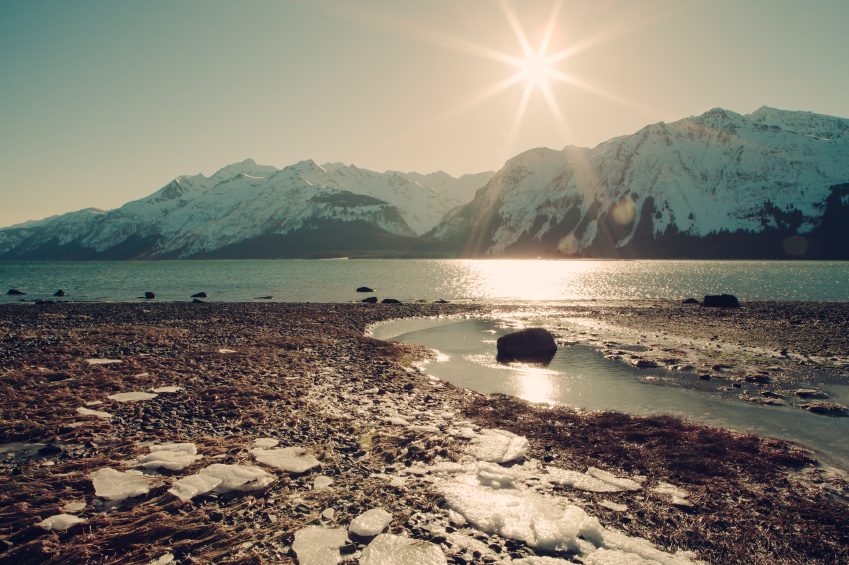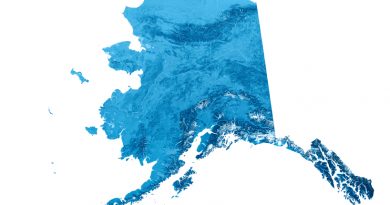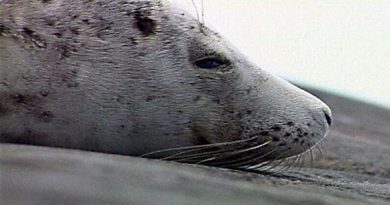Southwest, southeast Alaska face highest risks from ocean acidification

Coastal communities in Alaska that depend on fisheries were warned Tuesday to prepare for the impacts of ocean acidification.
A study from federal agencies says many of the science questions remain unanswered but changes are already happening.
The first concern is likely shellfish, because when the chemistry of the ocean changes, it’s harder for them to form shells. But which commercial shellfish and when they might be affected and in what waters are questions they can’t answer yet. But what the study can say is which communities are most vulnerable. This is the first product from the Synthesis of Arctic Research effort that combines the work of the National Oceanic and Atmospheric Administration with that of the Bureau of Ocean Energy Management and University researchers in social sciences.
Fisheries
Co-author Sarah Cooley, who wrote the report while at the Woods Hole Oceanographic Institution, and is now Scientific Outreach Manager of the Ocean Conservancy, says Wrangell, Petersburg, Sitka and the Lake and Peninsula Borough are specifically named because they are fishing towns.
“And what we find is that dependence on fisheries is really the key link between ocean chemistry conditions and human communities,” Cooley said. “Right now in Alaska, we have a very heavy dependence on specific harvests.”
“And those specific harvests of crabs and clams and shellfish are actually the things that we think are sort of at the front lines of harm from ocean acidification.”
Chukchi Sea
Acidity is directly related to rising levels of carbon dioxide in the air. It is worst in colder waters and in melt water. To the north in the Chukchi Sea, measurements show the cold acidic water from below increasingly rising to meet the cold acidic waters at the surface…with largely unknown biological effects. Of particular concern are the shell dependent plankton – krill and copepods and a little aquatic snail known as the pteropod, which is heavily fed on by Pink Salmon. But acidity also affects the tiny squid that the King Salmon eat.
“Some species of squid respond poorly to ocean acidification, too, because they have such a high metablolic rate that they can’t exhale as efficiently,” Cooley said.
That’s called an indirect effect in the study. They just can’t say what might be happening to salmon and other fin-fish because of it. Cooley says It is a big and complicated ecosystem out there.
“I think there are more surprises in store, because ecosystems are amazingly resilient,” Cooley said. “But I would love it if we could figure out where the surprises are going to be before we have nasty surprises, like in the Pacific Northwest, when we had nasty surprises of sudden losses of oysters. I’m hoping we can figure it out before we have more losses for people.”
Education and adaptation
In the case of oysters, the fix turned out to doable. It just took monitoring. When the acid waters shoal up, the oyster farmers change timing, depth, or even dose their larvae with antacids. It took them time to learn all this. And Sarah Cooley says that’s the real point of this report – it’s an effort to try to start getting ahead of the acidity change curve.
“But I think when we start to do studies like this, we can actually kind of go under the hood and figure out the pieces that make a community more or less likely to be hurt, and so we can try to fix those ahead of time,” Cooley said.
Cooley says the options include diversification and securing local government control, but might simply mean things like changing fishing areas and different times. But certainly better monitoring of acidity levels is going to be key for adaptation by coastal communities in Alaska.
Related stories from around the North:
Canada: Melting Arctic ice called ‘economic time bomb,’ CBC News
Greenland: Greenland’s northeastern ice sheet starting to melt, Eye on the Arctic
Iceland: Polar regions hit by ocean acidification, by Deutsche Welle’s Iceblogger
Norway: Emissions speeding up Arctic Ocean acidification, Alaska Dispatch
Russia: Melting permafrost eroding Siberian coasts, Deutsche Welle Ice-Blog
United States: Alaska feels outsized effects of climate change, according to new national report, Alaska Dispatch
-By Steve Heimel, APRN – Anchorage



